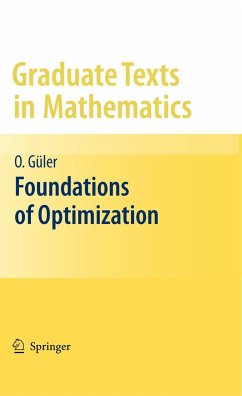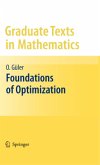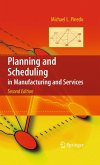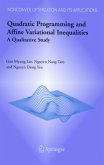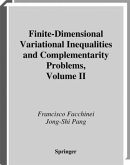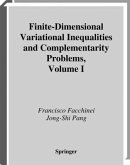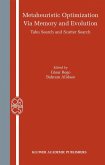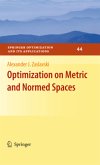The book gives a detailed and rigorous treatment of the theory of optimization (unconstrained optimization, nonlinear programming, semi-infinite programming, etc.) in finite-dimensional spaces. The fundamental results of convexity theory and the theory of duality in nonlinear programming and the theories of linear inequalities, convex polyhedra, and linear programming are covered in detail. Over two hundred, carefully selected exercises should help the students master the material of the book and give further insight. Some of the most basic results are proved in several independent ways in order to give flexibility to the instructor. A separate chapter gives extensive treatments of three of the most basic optimization algorithms (the steepest-descent method, Newton's method, the conjugate-gradient method). The first chapter of the book introduces the necessary differential calculus tools used in the book. Several chapters contain more advanced topics in optimization such as Ekeland's epsilon-variational principle, a deep and detailed study of separation properties of two or more convex sets in general vector spaces, Helly's theorem and its applications to optimization, etc. The book is suitable as a textbook for a first or second course in optimization at the graduate level. It is also suitable for self-study or as a reference book for advanced readers. The book grew out of author's experience in teaching a graduate level one-semester course a dozen times since 1993.Osman Guler is a Professor in the Department of Mathematics and Statistics at University of Maryland, Baltimore County. His research interests include mathematical programming, convex analysis, complexity of optimization problems, and operations research.
From the reviews:
"This book is an advanced graduate level text on the mathematical theory of optimization. ... filled with many useful examples and counterexamples that provide intuition to support the more formal theorems and proofs. ... There are also numerous exercises for the student. ... The book will also be useful as a reference for researchers working in various areas of optimization." (Brian Borchers, The Mathematical Association of America, October, 2010)
"Güler's book ... is intended for postgraduates or researchers in optimization theory; however, it is also suitable as a textbook in a first-year graduate level course. The book covers a wide range of mathematical tools and results concerning the fundamental principles of optimization in finite-dimensional spaces. ... this book can be a solid reference textbook, useful for graduate students in applied mathematics, economics, engineering, operations research, etc., and, more generally, for anyone wishing to learn the essential mathematical principles of optimization theory." (Giorgio Giorgi, Mathematical Reviews, Issue 2011 e)
"...this textbook presents the state of the art in the theory of continuous optimization in a very transparent and accessible way. Several results are proved in two or more independent ways to gain further insight into the problem structure, and to provide instructors with alternative ways of exposition. The book may be warmly recommended to graduate students and researchers in optimization, operations research, and other fields which apply optimization methods." (Zentralblatt Math, 2010)
"This book is an advanced graduate level text on the mathematical theory of optimization. ... filled with many useful examples and counterexamples that provide intuition to support the more formal theorems and proofs. ... There are also numerous exercises for the student. ... The book will also be useful as a reference for researchers working in various areas of optimization." (Brian Borchers, The Mathematical Association of America, October, 2010)
"Güler's book ... is intended for postgraduates or researchers in optimization theory; however, it is also suitable as a textbook in a first-year graduate level course. The book covers a wide range of mathematical tools and results concerning the fundamental principles of optimization in finite-dimensional spaces. ... this book can be a solid reference textbook, useful for graduate students in applied mathematics, economics, engineering, operations research, etc., and, more generally, for anyone wishing to learn the essential mathematical principles of optimization theory." (Giorgio Giorgi, Mathematical Reviews, Issue 2011 e)
"...this textbook presents the state of the art in the theory of continuous optimization in a very transparent and accessible way. Several results are proved in two or more independent ways to gain further insight into the problem structure, and to provide instructors with alternative ways of exposition. The book may be warmly recommended to graduate students and researchers in optimization, operations research, and other fields which apply optimization methods." (Zentralblatt Math, 2010)

